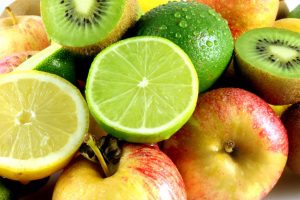 Diet is an important part of a healthy lifestyle, and if you’re going to stick to a diet, it needs to be sustainable.
Diet is an important part of a healthy lifestyle, and if you’re going to stick to a diet, it needs to be sustainable.
Short-term dieting can help you loose weight, but if you want to keep it off, you need to find a diet that will work for you in the long-term.
1. Think Healthy
Eating a wholesome diet is as much about the things in your head as the things in your stomach. You can’t do it unless you’re aware of what is good for you, or if you don’t really understand the food that you’re buying. So, take time to learn a little more about nutrition and about the food that you eat.
2. Eat Nutritious Foods
You need to eat food that provides all the nutrients that your body needs. Sounds obvious? The surprising thing is this principle is often overlooked in practice. All too often, we find ourselves stocking up on stuff that we don’t need (e.g. sugar) rather than things that we do.
Apart from the obvious negative effects of poor quality food on our health, low-nutrient food may lead to over-eating as our bodies crave the beneficial foods that we’re missing. Taking supplements can help, but eating high quality nutritious foods is even better.
3. Eat Food you Enjoy
If you don’t, you’ll be tempted to eat unhealthy food that you do enjoy. Be aware, however, that part of the process of changing your diet is re-educating your body to like different things. Many of the best foods have subtle flavours that you can’t discern if you’re used to the bold, simple flavours of unhealthy foods. It can take a while to train your taste buds to distinguish the more mature tastes.
4. Enjoy the Food that You Eat
Mindless eating often leads to over-eating. If you savour each mouthful you’re more likely to stop when you’re full.
5. Eat Food that Makes you Feel Satisfied
If you don’t feel full, you won’t stop eating. Some foods are better at this than others.
6. Choose Foods that Fit your Lifestyle
For example, choose food that is:
- Easily available
- Takes relatively little effort to prepare
- Affordable
7. Use a Smaller Plate
Studies have shown that using a smaller plate can drastically reduce the amount that you eat.
8. Drink More Water
Drinking water is important because:
- People sometimes eat because they feel thirsty
- Many other drinks contain stuff that really isn’t good for you (such as sugar or caffeine)
9. Plan Your Meals
It is much easier to maintain a well-balanced diet if you plan your meals in advance, and this can make a big difference to budgeting, too.
Bonus Tip: How to Eat One, Not the Whole Pack
Lots of food is supplied in packs. If you’re like me then, once I’ve opened the pack, I tend to eat the whole lot all at once. The solution I’ve come up with is to label each individual item with the day of the week when I’m going to eat it. For some reason, once I’ve assigned an item to a particular day, the compulsion to polish it all off today goes away!
Acknowledgements
- Image by hotblack courtesy morgueFile.com.